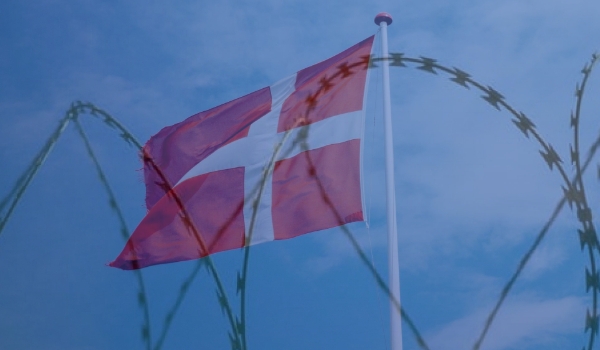Denmark has passed a law to pave the way for externalising asylum procedures and protection of refugees outside Europe despite lacking bilateral agreements with third countries willing to receive asylum seekers from Denmark. The move was met by harsh critique including by UNHCR, the European Commission, and NGOs for undermining international protection and solidarity.
On 3 June, the Danish parliament passed amendments to the Danish Aliens Act that foresee the transfer of asylum seekers outside the EU and the externalisation of asylum procedures and refugee protection. 70 MPs voted in favour of the legislative changes, while 24 voted against. “If you apply for asylum in Denmark, you know that you will be sent back to a country outside Europe, and therefore we hope that people will stop seeking asylum in Denmark,” Rasmus Stoklund, MP and immigration spokesperson of the governing Social Democratic Party, said. According to government statistics, Denmark received 1,515 asylum applications in 2020, a figure that has dropped steadily in the past years.
The UN Refugee Agency (UNHCR) warned that Denmark’s externalisation plans “run counter to the letter and spirit of the 1951 Refugee Convention, as well as the Global Compact on Refugees where countries agreed to share more equitably the responsibility for refugee protection.” In a recently published Note on the “Externalization” of International Protection and its Annex, the agency takes a clear stance against the externalisation of international protection obligations. In a statement obtained by Euronews, UNHCR global spokesperson Shabia Mantoo said UNHCR “remains firmly opposed to national initiatives that forcibly transfer asylum-seekers to other countries and undermine the principles of international refugee protection” and further states “UNHCR is very disappointed that Denmark is continuing to pursue this vision, despite the serious concerns we have raised.” The agency has previously called on Denmark not to pass the bill and warned the move could trigger a “race to the bottom” if other countries follow suit. A letter sent to UNHCR by the Danish Ministry of Immigration and Integration in response to the expressed concerns reads: “We believe that the Danish proposal on externalization lives up to the spirit and the fundamental principles of the international system for protection of refugees, based on the 1951 Refugee Convention.”
A European Commission spokesperson criticised the externalisation efforts saying “It is not possible under existing EU rules, or under the proposals of the new pact on migration and asylum” and warned the move was “undermining the foundations of the international protection system for the world’s refugees.”
ECRE member the Danish Refugee Council (DRC) condemned Denmark’s externalisation efforts as “irresponsible and lacking in solidarity” and highlighted the suffering inflicted in similar externalisation efforts including detention, slow asylum proceedings, and lack of access to legal assistance. According to Danish Minister for Immigration and Integration Mattias Tesfaye, the government is currently talking to potential host countries. However, given that Denmark has not secured any deals, DRC stressed that “the parliament has effectively voted in the blind”.
The new legislation comes in the context of increasingly restrictive migration policies in Denmark, including the withdrawal of protection of Syrians, that have gained momentum under the current Social Democratic government, officially aiming to ensure zero asylum seekers entering Denmark.
For further information:
- ECRE, Editorial: Wait… are we the baddies? Something Rotten in the State of Denmark, April 2021
- ECRE, Denmark: Experts Contributing to COI Reports Condemn Decision to Deem Damascus Safe for Return as UNHCR Reconfirms its Position on Returns to Syria, April 2021
- ECRE, Op-ed: Danish Externalization Desires and the Drive Towards Zero Asylum Seekers, March 2021
Photo: ECRE
This article appeared in the ECRE Weekly Bulletin. You can subscribe to the Weekly Bulletin here.

